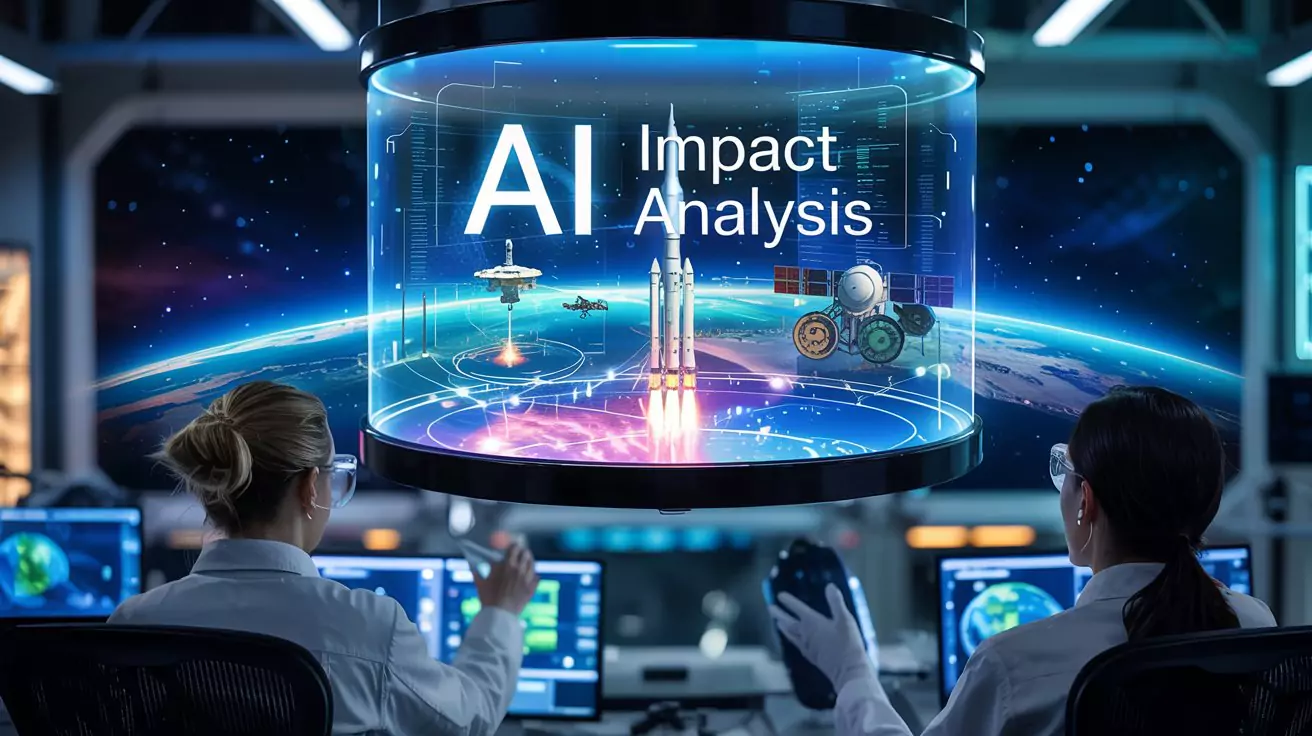AI Impact Analysis on the Future of the Space Industry
Artificial intelligence is poised to redefine the global space industry, serving as the intelligence core that powers next-generation exploration, satellite constellations, planetary robotics, and interstellar logistics. From low Earth orbit to deep space missions, AI is enabling a leap in space system autonomy, mission efficiency, and decision-making capabilities—transforming the space ecosystem into an intelligent, connected, and self-optimizing infrastructure.
The future of space operations will be increasingly autonomous, data-driven, and resilient—attributes made possible by AI’s ability to process vast volumes of sensor data, navigate complex space environments, and optimize mission planning in real time. Traditional space missions have relied heavily on Earth-based commands and pre-programmed scripts, but the growing complexity and scale of operations demand spacecraft that can act independently and learn from their environments. AI is filling this gap by enabling systems that can make adaptive decisions without constant ground intervention.

In the satellite domain, AI is driving major innovations in orbit and beyond. Satellites are now being equipped with AI models that perform onboard data analytics, allowing for faster and more efficient use of limited downlink bandwidth. These smart satellites can identify high-value information, prioritize transmissions, and even respond dynamically to changing Earth-based or in-orbit conditions. As satellite constellations scale into the thousands, AI also plays a pivotal role in orbital traffic management, ensuring coordination, deconfliction, and sustainability in increasingly congested space lanes.
Request AI Impact Analysis on Future of Space Industry : https://www.marketsandmarkets.com/pdfdownloadNew.asp?id=182402212
Space exploration is another frontier being transformed by AI. Autonomous rovers, spacecraft, and probes rely on AI to navigate unfamiliar terrain, detect scientific anomalies, and make split-second decisions critical to mission success. NASA’s use of AI-enabled image processing and route planning on Mars rovers is a current example of how machine intelligence supports off-Earth autonomy. Looking forward, AI will be central to crewed missions to the Moon, Mars, and beyond, supporting life support systems, predictive maintenance, crew-health monitoring, and real-time mission adjustment based on environmental feedback.
In the commercial sector, AI is reshaping space launch logistics, manufacturing, and space tourism. From AI-optimized rocket assembly to intelligent launch sequencing and payload integration, companies are leveraging AI to reduce costs, accelerate timelines, and improve reliability. SpaceX, Blue Origin, and other private space firms are integrating AI across flight systems, engine diagnostics, and reusable rocket landing algorithms. These developments are creating a more agile and responsive commercial launch ecosystem that aligns with both national security and private sector needs.
Defense applications are equally robust. AI is enabling faster threat detection, object tracking, and situational awareness in space-based surveillance systems. As near-peer adversaries expand their military presence in orbit, AI-driven intelligence, surveillance, and reconnaissance (ISR) from space is becoming a strategic priority for global defense forces. AI also supports cyber-resilience for satellite networks and can autonomously counteract jamming or spoofing attempts, ensuring uninterrupted command and control in contested space domains.
The integration of AI into Earth observation and climate science missions is also advancing global sustainability efforts. By automatically classifying land changes, monitoring atmospheric anomalies, and tracking oceanic patterns, AI is enhancing our ability to understand and respond to environmental challenges with unprecedented speed and accuracy.
Looking ahead, the future space economy—encompassing lunar mining, in-orbit manufacturing, and interplanetary logistics—will rely heavily on AI as a backbone for operations. Smart robotic systems, AI-driven mission design, and autonomous supply chain networks will be essential for enabling off-world industries to operate with minimal human oversight. As space becomes more commercialized, AI will ensure that large-scale operations remain efficient, scalable, and economically viable.
The space industry’s competitive edge will increasingly be determined by the depth of AI integration—across platforms, missions, and partnerships. Governments and private entities that invest early in AI-centered space architectures will be best positioned to lead the next era of orbital dominance, planetary exploration, and space-based innovation.
Related Report :
X
GET A FREE SAMPLE
This FREE sample includes market data points, ranging from trend analyses to market estimates & forecasts. See for yourself.
SEND ME A FREE SAMPLE





